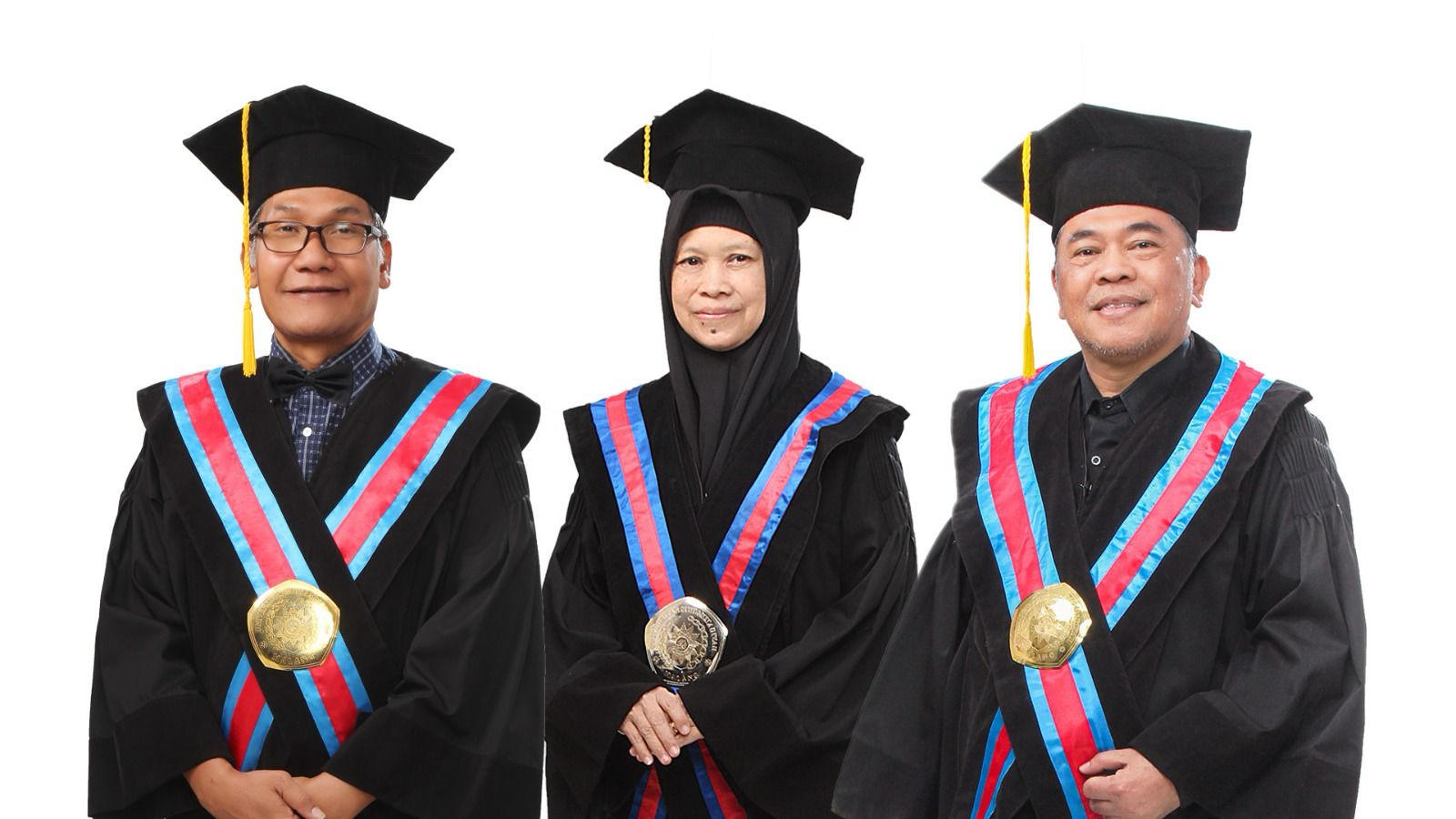 |
| Prof. Dr. Sidik Sunaryo, M.Si., M.Hum., Prof. Dr. Tongat, M.Hum., and Prof. Dr. Fifik Wiryani, M.Si., M.Hum. (Photo: Special) |
The University of Muhammadiyah Malang (UMM) once again increased the number of its professors. This time, the Faculty of Law at UMM inaugurated three new professors. They are Prof. Dr. Sidik Sunaryo, M.Si., M.Hum., Prof. Dr. Tongat, M.Hum., and Prof. Dr. Fifik Wiryani, M.Si., M.Hum. The professors, who were inaugurated on February 7, 2024, have their research focused. It ranged from eclectic justice and social punishment to state ownership rights and agrarianism.
For example, Sidik examines deeper into the study of eclectic justice. According to him, the judicial process often becomes a contestation arena for pursuing quantity rather than a process to narrow down wisdom values. Meanwhile, eclectic justice prioritizes wisdom values over quantity values. "Wisdom values contain teachings, while quantity values only explain utterances," he explained.
Read more : UMM Lecturer Shares How to Express Anger Without Hurting Others
Currently, the downstream of the judicial process aims to increase the number of decisions rather than building wisdom values. The sentencing process is characterized by numerical figures that are suffering-oriented and material fines that are loss-oriented. In contrast, the concept of eclectic justice views the principles of sentencing as an elaboration of wisdom values to restore and return humanity. It focuses especially on universal human values.
On the other hand, in his academic speech, Tongat discussed social punishment, its urgency, and its contribution to Indonesian criminal law in the future. According to him, social punishment has various advantages compared to the deprivation of independent punishment. First, it can prevent perpetrators from negative impacts due to placement in institutions, such as stigmatization, negative interactions with other inmates, and dehumanization.
"Second, social punishment can reduce the population of correctional institution residents. Third, social work will also significantly reduce the living costs of inmates in institutions and alleviate the burden on society as taxpayers," he added.
Tongat added that the fourth advantage is providing beneficial benefits to society through the mobilization of social punishment convicts. Lastly, social punishment will also alleviate poverty and help family economies. Social punishment convicts can still carry out their jobs, thus fulfilling their role as the backbone of the family.
Read more : The Speaker at the UMM Election Talkshow Mentions Students as the Frontline Guards.
An interesting study was also presented by Fifik, who explained state ownership rights (HMN), conflicts, and agrarian justice. She explained that although Indonesia has transitioned politically from an authoritarian regime to a relatively democratic government, Indonesia still maintains the concept of HMN, articulated hegemonically by the state. For example, in the plantation sector, indigenous law communities are marginalized because they must first obtain recognition from the state. Hence, conflicts can arise to obtain compensation for land.
"I hope this research can encourage the creation of a new culture in state administration, especially in the agricultural sector, so that it can achieve the desired justice. The actual output I want to achieve is to redefine the concept of HMN, which initially has hegemonic nuances, to shift towards a participatory and just HMN concept," Fifik concluded. (wil/fajr)